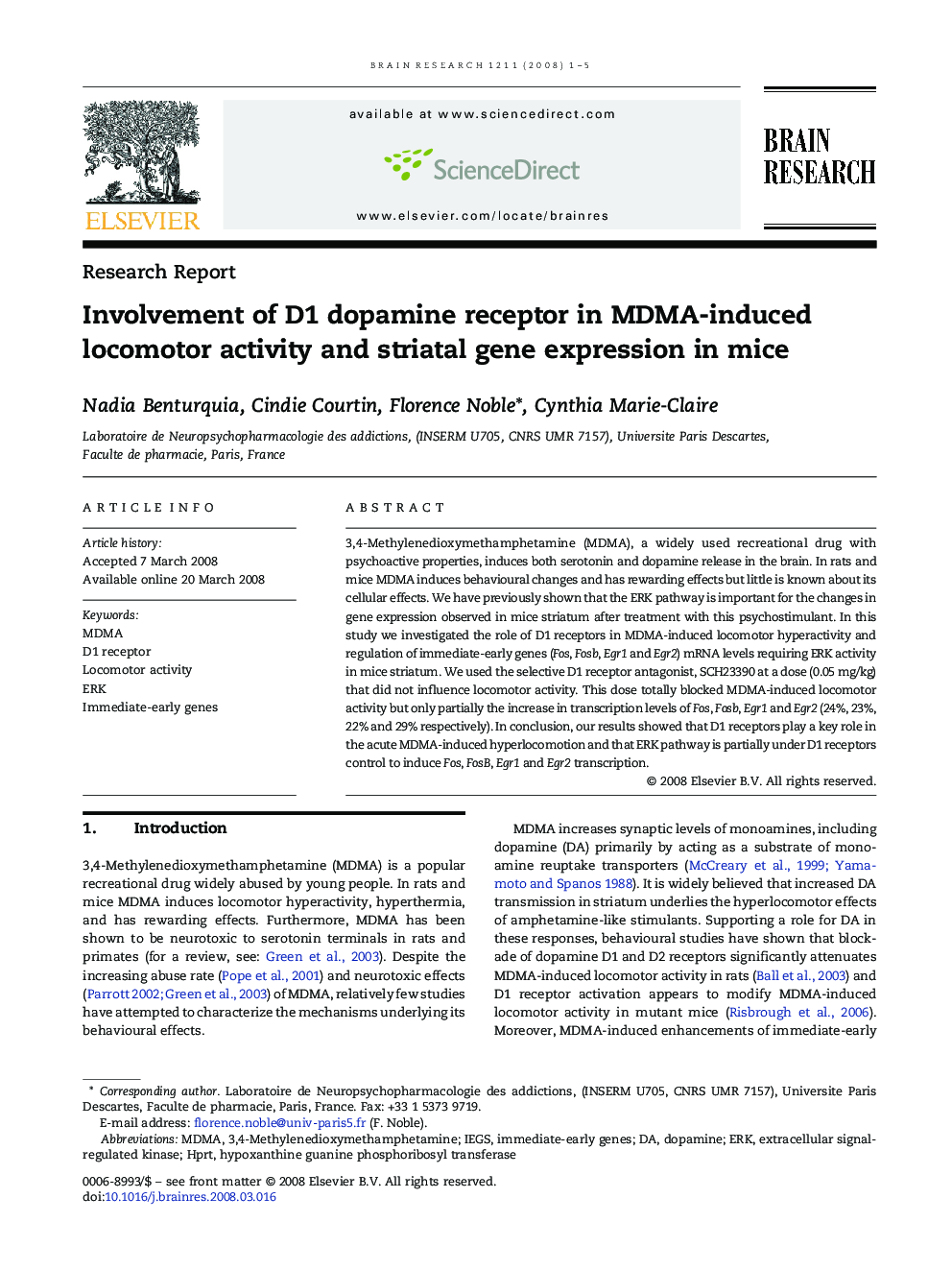| Article ID | Journal | Published Year | Pages | File Type |
|---|---|---|---|---|
| 4329676 | Brain Research | 2008 | 5 Pages |
3,4-Methylenedioxymethamphetamine (MDMA), a widely used recreational drug with psychoactive properties, induces both serotonin and dopamine release in the brain. In rats and mice MDMA induces behavioural changes and has rewarding effects but little is known about its cellular effects. We have previously shown that the ERK pathway is important for the changes in gene expression observed in mice striatum after treatment with this psychostimulant. In this study we investigated the role of D1 receptors in MDMA-induced locomotor hyperactivity and regulation of immediate-early genes (Fos, Fosb, Egr1 and Egr2) mRNA levels requiring ERK activity in mice striatum. We used the selective D1 receptor antagonist, SCH23390 at a dose (0.05 mg/kg) that did not influence locomotor activity. This dose totally blocked MDMA-induced locomotor activity but only partially the increase in transcription levels of Fos, Fosb, Egr1 and Egr2 (24%, 23%, 22% and 29% respectively). In conclusion, our results showed that D1 receptors play a key role in the acute MDMA-induced hyperlocomotion and that ERK pathway is partially under D1 receptors control to induce Fos, FosB, Egr1 and Egr2 transcription.
